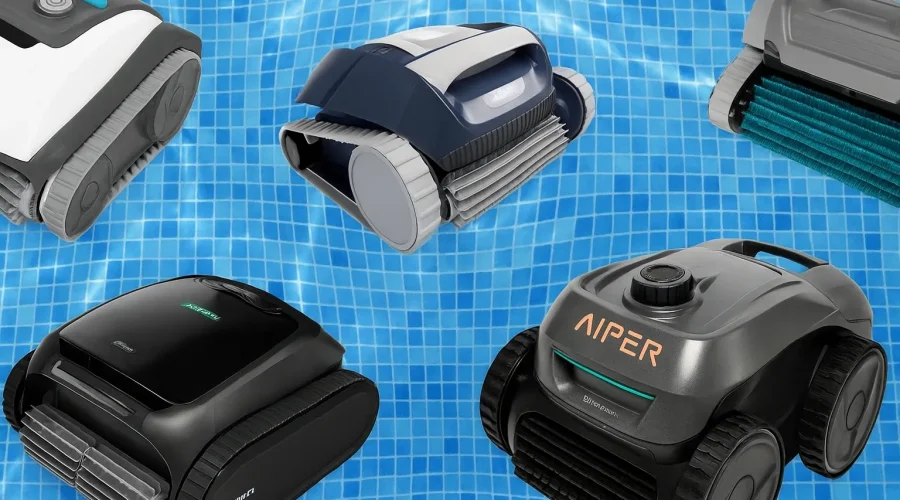I’ve tried quite a few cleaners over the years, and if you ask me what is the best swimming pool vacuum, it depends a lot on your pool type, how much debris you deal with, and your filtration system. My setup includes a saltwater pool surrounded by trees, so the best pool vacuum for me was one that could handle heavy leaves and fine dirt without clogging.
I went through tons of best pool vacuum reviews on Amazon and even dropped by Lesliespool to compare options hands-on. The best swimming pool vacuum I found had a simple maintenance routine and was compatible with my filtration system. If you’re looking for value, don’t skip checking out the best buy pool vacuum section either, it’s a goldmine for bargains.
Whether you want a robotic model or something basic, make sure it ranks as a best pool vacuum. Picking the best vacuum for pools might take a bit of research, but the results are worth it when your pool sparkles like new with the best pool vacuum cleaner. Some of the best pool vacuums also require minimal effort after the first setup, so you can enjoy the water without constant cleanup. For more insights, check out Deep Dive Picks.
What is a Pool Vacuum and Why Do You Need One?
I remember the first time I bought a Pool. It looked perfect until the leaves, dirt, and small bugs started building up. That’s when I discovered the real value of a best pool vacuum. So, what is a best pool vacuum? It’s a Cleaner designed to remove debris from your pool’s floor and walls using suction. It works much like a home vacuum but is specially built to operate underwater.
Now, if you’re wondering what is the best pool vacuum, here’s the truth, it’s the one that fits your pool’s size, has a simple setup, and doesn’t demand frequent maintenance. From my own use, I noticed how the right vacuum keeps the filtration system running longer by reducing its load and makes cleaning feel less like a chore. Whether it’s manual or automatic, a good vacuum ensures your Pool remains safe, clear, and swim-ready every day.
What Types of Pool Vacuums Are Available?
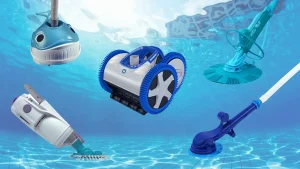
When I first set up my backyard pool, I didn’t realize how tricky it would be to find the best pool vacuum for my setup. It turns out, the pool type really decides which vacuum works best. After trying a few, here’s what I’ve learned.
If you want hands-off cleaning, the best robotic pool vacuum or the best pool vacuum robot is unbeatable. These robotic vacuums map your pool and clean on their own. They’re perfect if you want something automatic and efficient.
But if you’re more budget-focused or like being in control, the best manual pool vacuum might be your style, it’s simple and great for spot cleaning. Then there’s the best suction pool vacuum, which connects to your pool’s pump and works great if your setup has strong filtration.
Want total freedom from cords? Go for the best cordless pool vacuum, especially helpful if your pool area lacks easy power access. Whatever your needs, there’s a cleaner that fits just right.
How Does a Pool Vacuum Work?
When I first started taking care of my own pool, I had no idea how a pool vacuum worked until I tried out different types. A pool vacuum operates by pulling in debris through suction or by using pressure-side or robotic systems. The most common cleaner connects to the skimmer, using the pool’s pump to generate suction and pull in leaves, sand, and dirt. That operation helps direct the waste into the filtration system.
From my experience, the best way to vacuum a pool is by choosing a robotic model. These are smart, self-driven machines that don’t rely on your pool’s pump and offer deep filtration and efficient cleaner movement. Whether it’s a pressure-side vacuum that pushes debris into a separate filter bag or a suction type linked to your skimmer, each system makes pool care easier and more automatic.
What Benefits Can You Expect from Using a Pool Vacuum?
Ever since I started using the best pool vacuum for sand and dirt, my pool has been so much easier to maintain. What surprised me the most was how effortlessly it picked up leaves, sand, and even stubborn algae from the bottom. It saved me hours of cleaning, and the difference in filtration quality was immediately noticeable. With the best pool vacuum for algae, there’s no more murky water or constant skimming, just a clear, inviting pool every day.
If you have a soft-bottomed pool like mine, going for the best pool vacuum for vinyl liner makes a huge difference in both performance and long-term care. It’s gentle yet effective, preventing wear while keeping things spotless. I barely do any maintenance now these vacuums are truly low-maintenance. Whether it’s floating debris or fine particles hiding in corners, the best pool vacuum for leaves ensures nothing gets left behind. It’s like giving your pool a fresh start every time.
How to Choose the Best Pool Vacuum for Your Needs?
When I first moved into a home with a small pool, I didn’t realize how much the debris and dirt could pile up overnight. Choosing the best vacuum for pools felt overwhelming. But I learned quickly it all starts with understanding your needs. You want a cleaner that matches your pool type and size. For a compact backyard pool, the best pool vacuum for small pools does wonders, it’s light, easy to handle, and fits tight corners. If you own an Intex-style setup, the best vacuum for an Intex pool should work well with its soft walls and modest dimensions.
Another factor is the filtration system your pool uses. Some vacuums work better with cartridge filters, while others need a sand filter for optimal suction. If you’re like me and own an above-ground pool, the best vacuum for an above ground pool is a game-changer, powerful yet gentle on the liner. Each type of vacuum brings something unique, so pick one that aligns with how often you use your pool and the kind of debris you usually deal with.
What Factors Should You Consider When Selecting a Pool Vacuum?
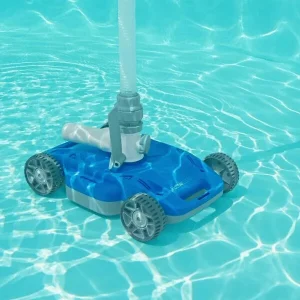
When I picked my first best affordable pool vacuum, I learned the hard way that it’s not just about price but also about how well it handles leaves, sand, and stubborn algae. If your pool is near trees, you’ll want the best pool vacuum for leaves, one that doesn’t clog or lose suction.
For desert climates or fine particles, go with the best pool vacuum for sand, otherwise, you’ll spend hours cleaning the filter. Once, I ignored the setup details and ended up buying a model that didn’t match my pool type, which made maintenance a nightmare.
What really changed the game was when I tested a vacuum built specifically for algae dust. That’s when I realized how vital it is to choose the best pool vacuum for algae dust. It dramatically improved the performance of my weekly cleans.
And if you’re looking for a wallet-friendly option, don’t settle until you try the best budget pool vacuum. Some are compact but mighty against heavy debris. Just make sure to consider these real-world needs before deciding.
How Do Different Pool Sizes Affect Your Choice of Vacuum?
Choosing the best pool vacuum depends heavily on your pool type and its dimensions. From my own experience cleaning both small and large pools, I’ve seen how a mismatch between vacuum type and pool size can waste time and energy. For example, a compact unit like the best pool vacuum for small pools works wonders in tight corners and shallow water, but struggles with deeper or in-ground pools where suction power and coverage are key.
If you have a lightweight above-ground pool with a vinyl liner, the best vacuum for above ground vinyl pool will be one that’s gentle on surfaces yet strong enough to handle daily debris. I personally lean toward options that are built for this specific pool type to avoid damage and ensure efficient cleaning.
Learn More
But when dealing with bigger in-ground pools, a high-performance system, often a robotic one like the best robot vacuum for above ground pools offers a more hands-free, thorough experience. These vacuums adapt well regardless of weight and layout, which makes them ideal for varied pool dimensions.
What Features Should You Look for in a Pool Vacuum?
When I tested different models for my above-ground pool, I realized how much easier life became once I found the best cordless pool vacuum. No cords meant less hassle and more freedom while cleaning. It’s smart to go for a battery-powered unit with solid runtime, so it doesn’t die halfway through cleaning. I once had a vacuum that needed charging every 15 minutes never again!
If you’re after convenience, the best rechargeable pool vacuum is a dream. I loved how lightweight it was weight truly matters when you’re lifting it in and out of the water. Look for features like smart navigation; the best robot pool vacuums glide around without missing a spot. I’ve also found that the filtration system makes or breaks performance. A strong one keeps the water sparkling. Whether it’s the best battery pool vacuum or the best battery powered pool vacuum, a little research on these aspects will save you both time and effort.
What Are the Top Pool Vacuums on the Market Today?

After years of setup, testing, and trying different models in my own pool, I’ve found that choosing the best pool vacuum isn’t just about suction. It’s about real-life performance, ease of use, and long-term reliability. For instance, some of the best pool vacuums I used performed great in the beginning but wore out fast.
That’s where trusted names and solid reviews from platforms like Amazon and Lesliespool come in handy. From what I’ve experienced, the best pool vacuum above ground should be lightweight, powerful, and quick to clean. Models tagged as the best rated pool vacuum usually have excellent energy use and cover every corner.
When looking for the best pool vacuum cleaners, focus on those marked Best Overall in customer feedback. A good best vacuum pool cleaner will make a big difference in your weekly routine, especially when it’s backed by real user reviews and smooth setup.
Buy Now
Which Robotic Pool Vacuums Are Highly Rated?
When I tested some of the best robotic pool vacuums, I was impressed by how smart and efficient they’ve become. One of the best robot pool vacuum models I used had precise navigation, climbing walls and scrubbing the floor without missing a spot. Its brushes worked well on both dirt and algae, and I didn’t have to worry about it getting waterlogged.
Among the standout picks was the Aiper Scuba S1, which I found to be the best cordless pool vacuum robot for hassle-free cleaning. It offered long runtime, quick charging, and full coverage even in tricky corners. If you’re wondering what is the best robotic pool vacuum, this one deserves the spotlight, especially for those looking for the best robotic above ground pool vacuum or a strong robotic cleaner with a reliable suction vacuum head. From my experience, it even rivals the best dolphin pool vacuum models in both performance and value.
What Are the Best Suction Pool Vacuums Available?
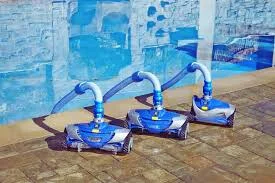
After trying out a few options for my own backyard setup, I found that Zodiac models truly stand out among the best suction pool vacuum choices.
One of my top picks was the MX8 Elite, which impressed me with its Cyclonic suction and dual scrubbing brushes that handle debris along the waterline and steps. It’s a powerful Cleaner that connects easily using standard tubing, making it effortless to use in both small and large pools.
For anyone looking for the best suction vacuum for vinyl lined pools and spas, the Zodiac MX8 Elite remains a reliable option. I especially liked how its suction-side design made it low-maintenance and budget-friendly.
It features a large Canister to trap debris without losing power mid-clean. Whether you’re choosing the best suction side pool vacuum for daily use or occasional deep cleans, this one checks all the right boxes without any fuss.
Are There Any Top-Rated Manual Pool Vacuums to Consider?
After testing a few manual options in my small backyard pool, I was surprised by how efficient the best manual pool vacuum models can be. One standout was a battery-powered unit from Blaster, especially their Max version. It easily connected to a standard pole and worked great on stairs, where robotic vacuums tend to struggle. It didn’t need a hose, which made setup simpler and saved time.
The best handheld pool vacuum also doubled as the best handheld cordless pool vacuum, giving me a solid runtime without needing constant recharging. I found it surprisingly affordable, considering how well it handled debris and even qualified as the best pool vacuum for dead algae.
Learn More
In fact, for smaller cleanups, it was the best handheld pool vacuum for algae I’ve used. If you’re looking for flexibility, lightweight design, and strong suction, then the best handheld pool vacuum can outperform bulky units on many fronts.
How to Properly Use and Maintain Your Pool Vacuum?
Using a pool vacuum the right way keeps your pool fresh and fun all season. First, always check the user manual to understand your specific model and its components. I learned the best way to vacuum a pool is to begin with a proper setup.
Make sure the hose is securely attached, and the filtration system is clean and running. Move the vacuum slowly so you don’t stir up debris. Patience goes a long way here. Once the cleaning is done, turn everything off and disassemble the parts gently. Rinse each piece and dry them before storage. For more insights, check out this detailed guide on the best robot pool cleaners.
Trust me, skipping pool vacuum maintenance can shorten its life fast. Regular upkeep like checking the filtration, cleaning the hose, and storing everything dry makes a huge difference in performance. Learning how to use a pool vacuum properly helped me avoid common breakdowns and saved money on repairs.
What Steps Should You Follow to Use a Pool Vacuum Effectively?
After testing the best pool vacuum for Intex pool last summer, I realized that the process becomes much easier if you simply follow the right steps. I always start by checking the setup, making sure everything’s connected tight and secure. Next, I attach the hose firmly. Air pockets are the enemy of good suction. I slowly fill the hose with water to push out the air, which helps maintain steady flow during cleaning.
Once that’s done, I plug the hose into the skimmer and let the vacuum settle near the waterline. This is where the real work begins. I move it gently across the pool floor, letting the vacuum glide without disturbing the filtration system too much. For someone like me who’s tried every model from cheap ones to the best vacuum for above ground pools, these small practices can make a big difference in cleaning speed and pool clarity.
How Can You Maintain Your Pool Vacuum for Longevity?
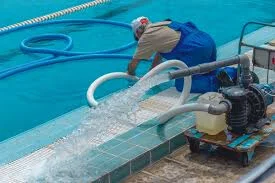
After years of trying different models, I’ve realized that even the best vacuum pool cleaner needs more than just regular use. It needs smart care. Every time I clean my pool, I make sure to disassemble the unit gently and check all the components for wear and tear.
Don’t wait for problems to show. A quick rinse of the filter after each use prevents clogging and boosts suction power. I always store mine in a dry, shaded spot because proper storage helps avoid cracks and keeps the hose flexible. One time, my best cordless inground best pool vacuum lost suction mid-clean. It turned out to be a blocked filter and a bent hose both avoidable with better upkeep.
So now, I set a routine maintenance schedule that matches the runtime of my vacuum. Whether you have an advanced cleaner or the best vacuum cleaner for an above ground pool, these small habits will help your device stay efficient and last longer.
What Common Issues Might You Encounter, and How Can You Solve Them?
When using the best pool vacuum for algae or dealing with algae dust, I’ve noticed a few repeating problems that can really affect performance. For instance, if the vacuum seems weak, it’s often due to clogged filters or not enough suction. I once had to clean my vacuum’s filter twice in a week because debris like leaves and fine sand were stuck deep inside. It’s crucial to rinse the filter regularly to avoid blocking the waterline and keep everything flowing smoothly.
Another issue I ran into was unexpected noise during operation. It turned out the vacuum was running dry due to a minor leak that messed with the pressure. Regular maintenance checks, like tightening connections and inspecting hoses, can stop these small problems from becoming big ones. From experience, even the best pool vacuum for algae dust needs a bit of attention to keep your pool clean and clear.
What Are the Costs Associated with Buying a Best Pool Vacuum?
When I first looked into buying a best pool vacuum, I was surprised at how much the pricing could vary. You’ll find options ranging from the best budget pool vacuum to the best cheap pool vacuum, and while the words may sound the same, there’s a slight difference in what they offer. A best affordable pool vacuum gives a solid middle ground between quality and cost. If you’re on a tight budget, going for the best cheap pool vacuum might seem tempting, but make sure it still offers value for your purchase.
I usually check platforms like Amazon or Lesliespool because they show user reviews and deals. Personally, I got mine through Amazon during a summer sale, and I felt the value was unbeatable. Always look out for seasonal discounts. While the upfront cost can range from $50 to $500, understanding what you truly need helps in balancing budget and performance.
How Much Should You Expect to Spend on a Pool Vacuum?
When I first looked for the best pool vacuum for my backyard setup, I was overwhelmed by the options. But soon I realized that understanding the price range made the process easier. When you shop on Amazon or other online stores, you can find many good robotic pool suction vacuum heads. They usually cost between $50 and $200. These are often all you need. This range gives pool owners a good mix of performance and price.
The cost of a best pool vacuum can change based on its type. So, whether you stick to a strict budget or want to spend more, remember that robotic, manual, and suction-based vacuums each have different prices. From my personal experience, paying slightly more within this range often gives you better automation and efficiency without overpaying. It’s a smart move to decide what type you need first and then match it with your comfort level on price.
Are There Any Extra Costs You Might Overlook?
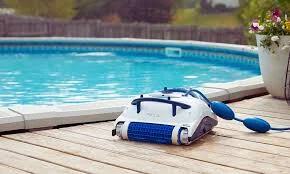
When I first bought what seemed like the best pool vacuum, I didn’t think twice about what would come next. A few weeks in, I realized I needed a replacement basket because leaves kept clogging it.
Then came the worn-out brushes that needed changing, and later, a cracked canister. These small parts aren’t usually expensive, but together, they add up fast if you’re not careful.
If your skimmer isn’t working well or the hose gets punctured, you’ll need to spend again. That’s why picking the best pool vacuum hose and a quality head really matters. Many cheaper options don’t come with a durable head or strong hose, and you end up replacing those often.
I now always double-check if the best pool vacuum head is included in the box, and I suggest doing the same. It’s smarter to spend a bit more upfront than be hit with surprise costs later.
What Is the Long-Term Value of Investing in a Quality Pool Vacuum?
When I first bought my pool, I underestimated how important a good vacuum would be. I made a cheap big mistake. Within a year, I had to deal with breakdowns, annoying maintenance, and uneven cleaning. That’s when I upgraded to one of the best rated automatic pool vacuums, and the difference was clear from day one. The durability was unmatched, and the setup took just minutes. Over time, I realized that a high-end cleaner isn’t just about convenience, it saves real money.
Choosing the best commercial pool vacuum gives you more than just clean water. You’re investing in longevity. These machines are made for heavy commercial use. They are tested for strength and smart value. The hours I once spent scrubbing were gone, and after months of use, there was no drop in power. Every detail from smart sensors to easy emptying had clearly gone through serious testing. And now, I spend more time enjoying my pool instead of cleaning it.
Conclusion
After trying many vacuums, I’ve found the best pool vacuum. It offers real satisfaction without the usual hassle. Setting it up was easy. I had it running in minutes. Its performance has remained strong all season. Whether you’re dealing with leaves, dirt or fine sand, this pool cleaner does the job with less effort.
If you’re looking for the best vacuum for pools, this is the one I’d confidently share as a personal recommendation. A clean pool is great, but enjoying it is even better. You shouldn’t have to worry about maintenance all the time. If I had to name just one product as the best pool vacuum, this would be it.
FAQs
What is the best suction pool cleaner?
The best suction pool cleaners include the Zodiac MX8 MK2, MX6, T3 Baracuda, and AX20 Activ. They offer strong debris pickup and efficient cleaning for in-ground and above-ground pools.
What is the difference between a pool cleaner and a pool vacuum?
Vacuuming once a week is usually enough, but more often is fine if there's heavy debris. Extra cleaning may be needed after storms or during peak use.
What is the best pool equipment brand?
Top pool equipment brands are Pentair, Hayward, Jandy, Zodiac, Intex, and Polaris. They are known for reliability, innovation, and efficiency across various pool components.
Can I vacuum my pool every day?
Vacuuming once a week is usually enough, but more often is fine if there's heavy debris. Extra cleaning may be needed after storms or during peak use.
What is the best suction pool cleaner?
The best suction pool cleaners include the Zodiac MX8 MK2, MX6, T3 Baracuda, and AX20 Activ. They offer strong debris pickup and efficient cleaning for in-ground and above-ground pools.
What is the difference between a pool cleaner and a pool vacuum?
Vacuuming once a week is usually enough, but more often is fine if there's heavy debris. Extra cleaning may be needed after storms or during peak use.
What is the best pool equipment brand?
Top pool equipment brands are Pentair, Hayward, Jandy, Zodiac, Intex, and Polaris. They are known for reliability, innovation, and efficiency across various pool components.
Can I vacuum my pool every day?
Vacuuming once a week is usually enough, but more often is fine if there's heavy debris. Extra cleaning may be needed after storms or during peak use.
